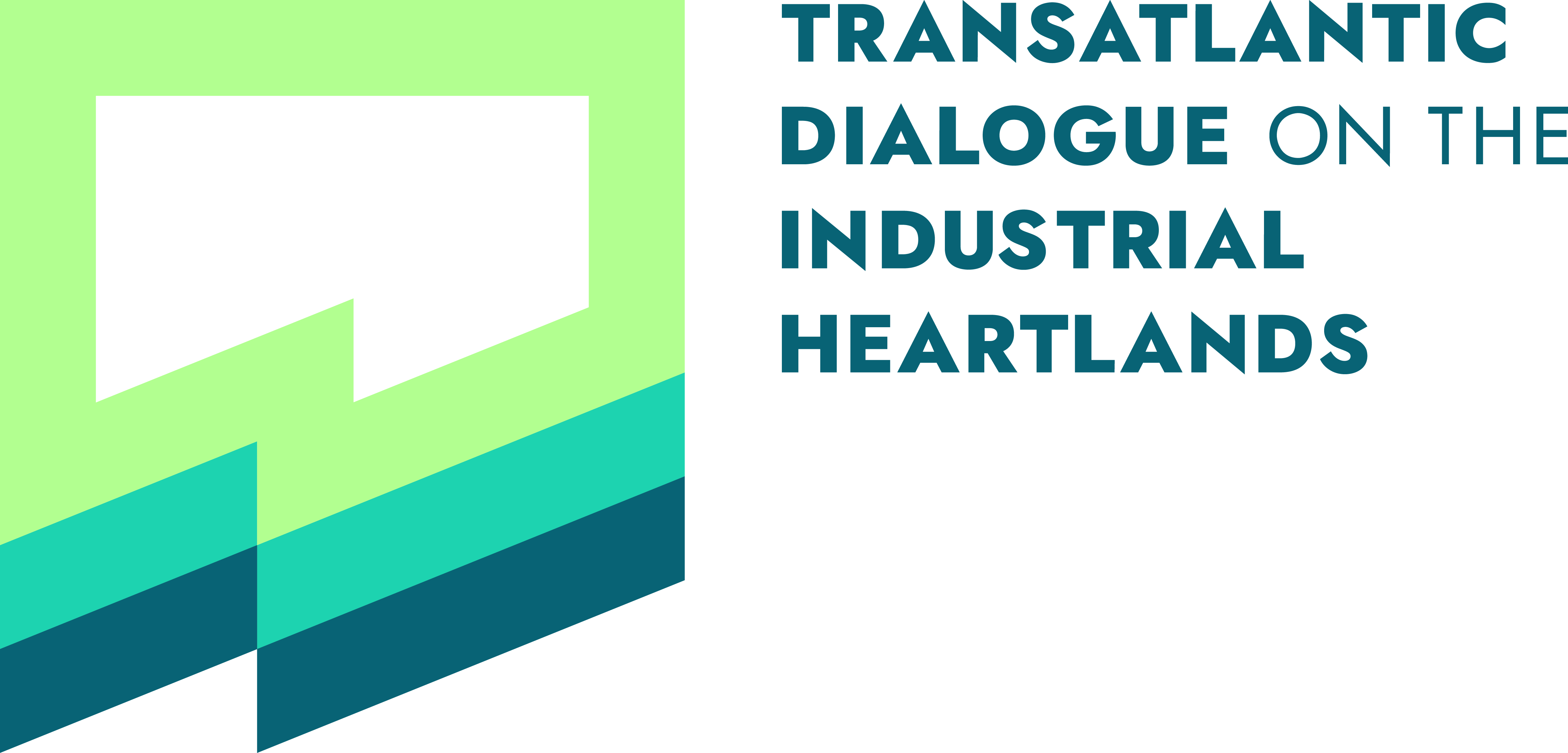Authors: John Austin and Emma Erkkila
At the far end of the ornate luncheon table – set in a private dining room at the Rosewood Hotel within the Munich Security Conference’s (MSC) secure perimeter – Finnish Parliamentarian Tytti Tuppurainen was waving to get my attention.
With colleagues from the German Council on Foreign Relations, I was facilitating an MSC side event of elected officials and leaders representing 20 democracies – all trading notes on how to bring new economic opportunity and optimism to residents of our countries feeling left-behind and ignored. We were looking together at how to address the root conditions that led to support for the polarizing nationalist and populist movements that were threatening our democracies. The challenge seemed almost insurmountable – particularly the day after Vice-President JD Vance – author of Hillbilly Elegy and arguably a successful graduate of the feeling-disrespected white working class – had just delivered his traumatizing scold of European democratic leaders – telling them that they were the threat to democracy.
Finally recognizing Tuppurain’s frantic wave, I turned to her to get her perspective. Little did I anticipate that she would offer in Finland an example of a successful and egalitarian economy and cohesive society that had avoided the politics-upending ethnonationalist upwelling and polarized political food-fighting most of the democracies represented around the table were experiencing. “Look, for the 7th year in a row, surveys show that the Finns are the happiest people of any country,” the MP offered. “Why is this so? And how have we avoided resentment driven anti-system political movements that are finding purchase elsewhere?”
She laid out the Finnish recipe for a happy citizenry and a cohesive society that underpins a strong functioning democracy, a formula detailed in the report “Finland’s Path to Keeping Society Whole” published by the Eisenhower Institute and the Academy of International Affairs NRW: Work hard to earn and keep high levels of trust in institutions and the rule of law. Build a strong, innovation-led economy. Put in place policies that ensure an equitable and egalitarian distribution of income. Deliver on a commitment to excellent, universal and comprehensive education. Preservation of a healthy natural environment and shared appreciation for nature and outdoors.
A closer look at these underpinnings of Finnish economy, society and culture show how the right blend of purposeful public policy choices can help to modulate any aggressive turn to dismantle the social welfare state and avoid the kind of “illiberal” politics and political leaders that bedevil so many democracies.
Shared Faith in Institutions. According to the Organisation for Economic Co-operation and Development (OECD), in 2023, 47% of Finnish people reported high or moderately high trust in the national government, above the OECD average of 39%. This high level of trust is not only placed in the national government, but also in the police (87%), other people (78%), and the judicial system (74%). And this relatively high trust level is no accident. Finland works at maintaining high-level responsiveness in public services and reliable and predictable policies.[1] The Finnish government pays attention to survey-data like that from the OECD, and uses it to improve their systems. The Finns also monitor closely and work deliberately to continuously improve the publics perceptions of their own abilities to impact political processes.[2] Finland’s highly competent and effective education system has also contributed to the deep respect and trust in institutions and authorities.
Egalitarian Economy. Finland’s happiness levels and feelings of shared purpose and inclusiveness can also be linked to its strong, egalitarian economy, which has experienced widely shared economic growth. A system of income guarantees and robust set of social welfare services and supports undergird Finnish families.[3] And where gaps do exist, such as gaps between rural and urban incomes, or based on gender differences, Finland works to close them. For example, in 2020, Finland set a target goal of 85% of new national developments and projects would have gender equality as a major or primary objective by this year, 2025.[4]
Excellent Education. Finland’s exceptionally high-performing education systems are a major contributor to equitable economic conditions, as well as faith in government and related institutions – key correlates of Finns high happiness ranking. OECD surveys show the overwhelming majority of people in Finland (81%) with recent experience with the education system are satisfied with it, compared to 57% on average across the OECD. Finnish teacher and educator quality are ranked among the best in the world. Finnish teachers are highly trained and respected professionals, with the majority of them holding master’s degrees.[5] This creates a high level of trust in parents, students, and faculty. A set of 1970s era reforms to equalize educational opportunity, increase social support for children and families, and invest in teachers have lifted the country to the No 7th ranked international position in educational outcomes in 2023.[6]
Environment and Nature. Finland also places great emphasis on a healthy and sustainable environment and protection of Finland’s abundant natural and outdoor spaces and resources. Nature has always been a key part of the Finnish way of life, with more than 80% of Finnish people saying that the forest is important to them.[7] This shared sense of stewardship of the natural order is reflected in its sustainable business practices – for example, businesses offer incentives for employees to walk or cycle to their place of work. Finland is a world leader in sustainable business practices, ranked 3rd internationally with regard to environmental sustainability.[8] Finland also ranks today first in the European Union on knowledge of the impacts, causes, and solutions to climate change.[9] This knowledge and connection is essential to making sure that Finnish nature continues to be preserved.
Innovative, High-Tech Economy. Finns’ equitably shared high-wage economy has been enabled by dynamic, entrepreneurial and innovative private-sector-led business and job growth. Finland has developed a robust technology industry, with the rise of Nokia being the best-known example. Even after Nokia lost its business dominance in cell-phones, Finland has still succeeded in nurturing a large and diverse high-tech industry, with the Information and Communication Technology (ICT) sector in Finland employing 6.8% of the workforce, the highest in the EU since 2017.[10] The government plays a role, via regulatory incentives and funding basic research to drive more innovation in the country.[11] Finland has also made rapid strides to digitalize broad ranges of government services, with the government allocating more than $451 million to support various digital projects being run by the country’s local authorities between 2018 and 2022.[12] These efforts have made Finland the most technologically advanced nation in the world, according to the United Nations Development Programme (UNDP).
Finland As a Democratic Guide
While Finland still does have a heavy right-wing party presence in government, its politics have not cleaved into the polarized camps that now characterize many other Western Democracies. It has not suffered from, nor seems close to the enabling of anti-democratic authoritarians. Authoritarians that seek and find ways to chip away at democratic institutions such as a free press, an independent judiciary, independent universities and elector process – as has been seen in Hungary, Poland before it reversed course, and now most tragically in the US.
The broadly and equitably shared prosperity of Finns, enabled by strong public education systems, support for private sector innovation, along with the historic shared embrace of all things Finnish, most notably nature and outdoors has kept trust in democracy and democratic institutions relatively high. And Finnish citizens happy.
Finland shows that public policies that purposefully build social cohesion can help a country and its residents resist the siren song of polarizing populism and us-versus-them politics, that has hamstrung so many other democracies.
[1] OECD, “OECD Survey on Drivers of Trust in Public Institutions 2024 Results – Country Notes: Finland,” OECD, July 10, 2024.
[2] Ministry of Finance, “OECD Trust Survey Provides Recommendations for Finland on Action to Reinforce People’s Trust in Government and Public Institutions,” Finnish Government, May 4, 2021.
[3] https://www.esn-eu.org/social-services-index/2023/finland
[4] OECD, “Advancing Gender Equality as a Foreign Policy Priority through Finnish Development Co-Operation | OECD,” OECD, September 27, 2024.
[5] “10 Reasons Why Finland’s Education System Is the Best in the World,” World Economic Forum, September 10, 2018.
[6] Math & Movement, “Finland’s Education System vs. the US: The Interesting and Surprising Differences,” Math & Movement, May 16, 2023.
[7] “Nature Relationship,” Finland Toolbox, accessed March 19, 2025.
[8] Heikki Hiilamo and Kati Kuitto, “Finland Report, Sustainable Governance Indicators 2024,” Sustainable Governance Indicators, accessed March 19, 2025.
[9] “Finns Rank First in European Union in Terms of Climate Change Knowledge, EIB Survey Finds,” European Investment Bank, July 8, 2024.
[10] “Finland – Information and Communication Technology,” Privacy Shield Framework, accessed March 19, 2025.
[11] “Finland – Information and Communication Technologies,” International Trade Administration, November 20, 2023.
[12] “Finland – Information and Communication Technology,” Privacy Shield Framework, accessed March 19, 2025.
About the Authors

John Austin is a Senior Fellow in the Eisenhower Institute at Gettysburg College, a Visiting Fellow with the Academy of International Affairs-NRW, and non-resident Senior Fellow at Brookings Institution. In these roles he has been the author of some of the most influential analysis of the politics and economics of industrial heartlands, as well as tangible guides and guidance for policymakers around constructive actions and change. Mr. Austin is also affiliated faculty with the University of Michigan’s Marsal Family School of Education, and the William Davidson Institute within the university’s Ross School of Business. Previously, he served 16 years in elected service on the Michigan State Board of Education. Mr. Austin received a master’s degree from Harvard University’s Kennedy School of Government, and a bachelor’s degree in Economics & Political Science from Swarthmore College, with High Honors and Phi Beta Kappa.

Emma Erkkila is a Research Assistant with the Eisenhower Institute at Gettysburg College (EI) and a student from Bates College.




